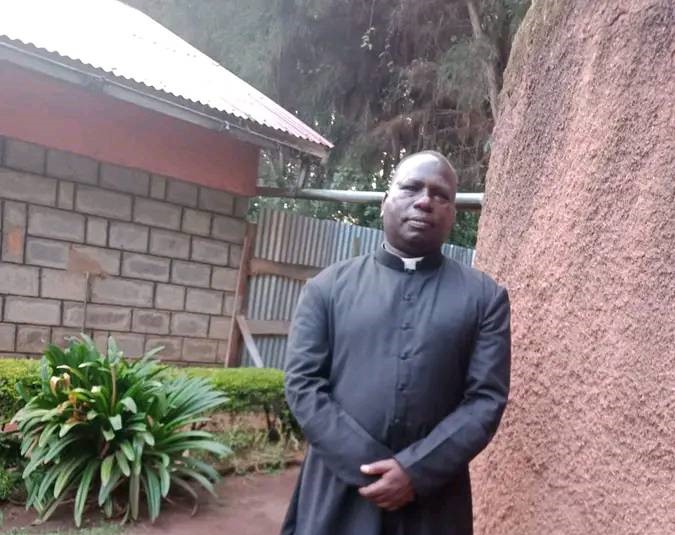Joaquim Magalhães de Castro
After Sunday Mass on October 26th, Father Ambrose Kimutai, parish priest of the church in Ndaraweta, Bomet County, in the Western Rift Valley, once again drew attention to the exploitation suffered by small tea producers, whose wealth inevitably ends up in the hands of corrupt officials. With this appeal, Father Ambrose is giving voice to the “small tea producers of Bomet, Kericho, and Nandi counties.” They are the ones who produce the enormous quantities of tea from which Kenya reaps huge profits through its export, which, in theory, allows it to pay the salaries of civil servants, teachers, and other employees. However, “and unfortunately,” the very system created by the government is destroying small farmers, imposing structures that exploit them and prevent them from obtaining sufficient income. Father Ambrose refers to the Kenya Tea Development Agency (KTDA), a state agency founded in 1964 with the intention of helping local farmers improve their production and which buys a large portion of the tea grown in the Rift Valley region.
Father Ambrose described as “absolutely shameful” the price of 13 Kenyan shillings per kilo (0.09 euros) that the KTDA pays to farmers in his region, an amount he considers completely insufficient to cover the high production costs. “We were expecting a bonus, but it’s only 13 shillings per kilo! Shameful! 13 shillings! If you give that to a farmer, he will certainly start crying. And the farmers are already crying!” exclaimed the clergyman. Father Ambrose also highlighted the enormous disparity between the payments from the KTDA and those from other agencies, which pay up to 40 shillings (0.27 euros) per kilo of tea leaves. “If the government doesn’t intervene, we’ll stop harvesting tea and sell it to KTDA,” he warned, giving authorities a one-month ultimatum to take action. He also indicated that major transport routes could be blocked to demonstrate the collective power of farmers. The Ministry of Agriculture launched a full audit of loans obtained by companies run by KTDA, an institution that “was originally well-structured but has been infiltrated by fraudsters who have increased operating costs, negatively impacting farmers’ profits,” acknowledged the Ministry’s Secretary-General. In early October, several members of parliament called for an investigation into corruption and mismanagement within KTDA.
Government investigations have revealed an alarming situation: some agency directors hold between 110 and 165 meetings per year, charging an average of 50,000 shillings (334 euros) per meeting, which earns them between 5.5 and 8.25 million shillings annually (between 36,800 and 55,194 euros), at the expense of producers struggling to survive. Tea is Kenya’s second largest export, with a total value of 215 billion shillings (1,438,709 euros).
Modern Christianity in Kenya dates back to 1844, when a missionary from the CMS (Canadian Missionary Society) settled near Mombasa, but little progress was made until the 1870s. A settlement for freed slaves, established in Frere Town, near Mombasa, prospered, and the first Kenyans were ordained in 1885. When the Uganda Railway, begun in 1896, gave access to the central plateau, the number of Catholic and Protestant missionaries increased. The Kikuyu in Central Kenya distrusted the missionaries, whom they saw as allies of the white settlers, and considered them pro-African. In 1929, a controversy arose over the attempt by some Protestant missions to ban the practice of clitoridectomy (female genital excision); Many Kikuyu left the missionary churches and schools and founded their own, free from missionary control. In the Mau Mau uprising of 1952, some Christians refused to take the secret Mau Mau oath and were killed; they are commemorated in the Anglican cathedral of Murang’a. After independence in 1964, there was a large influx of believers into churches. The Roman Catholic Church and the Anglican Church are the largest, but independent church movements have grown and multiplied. In 2000, more than 75% of the population declared themselves Christian.


 Follow
Follow


